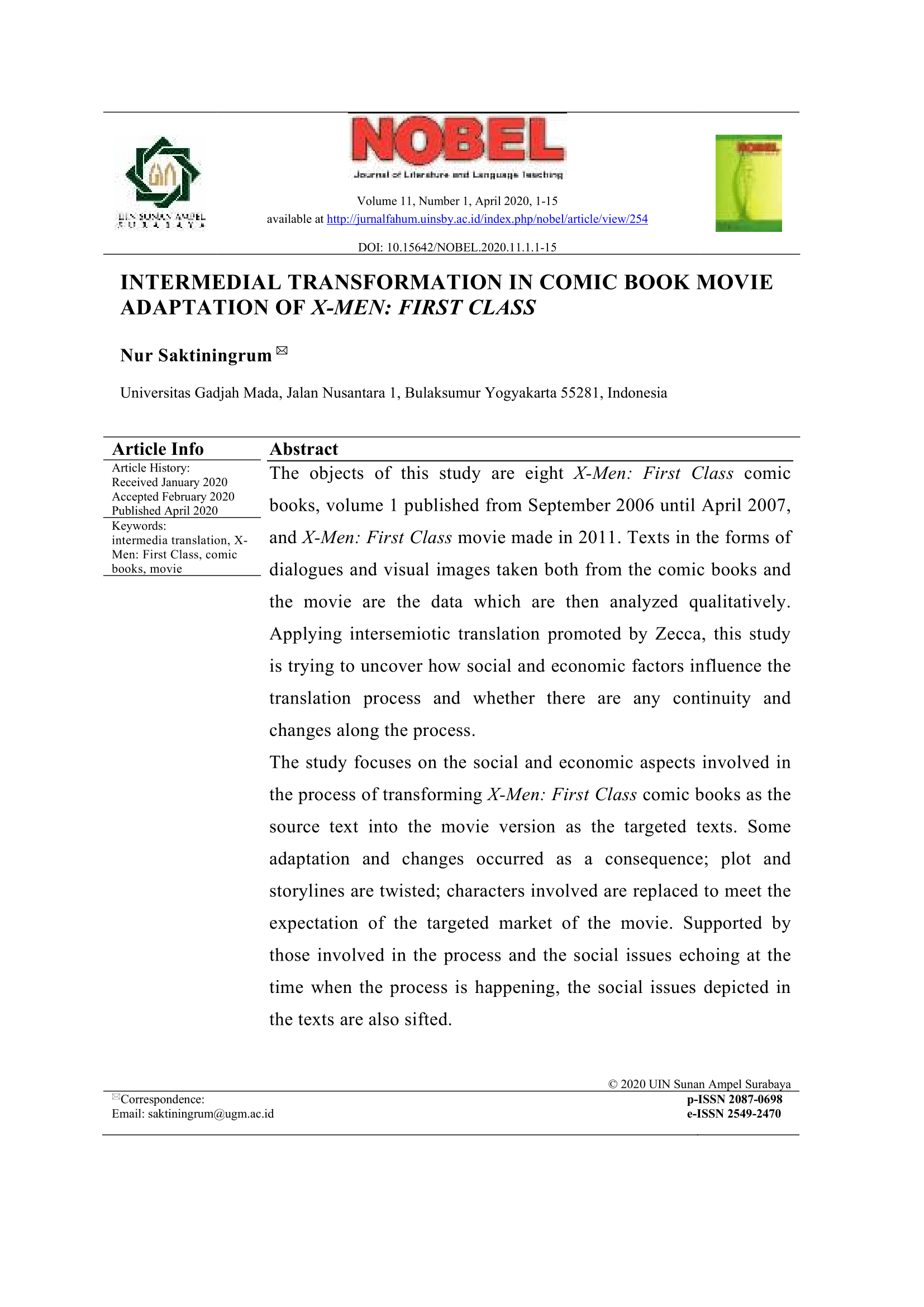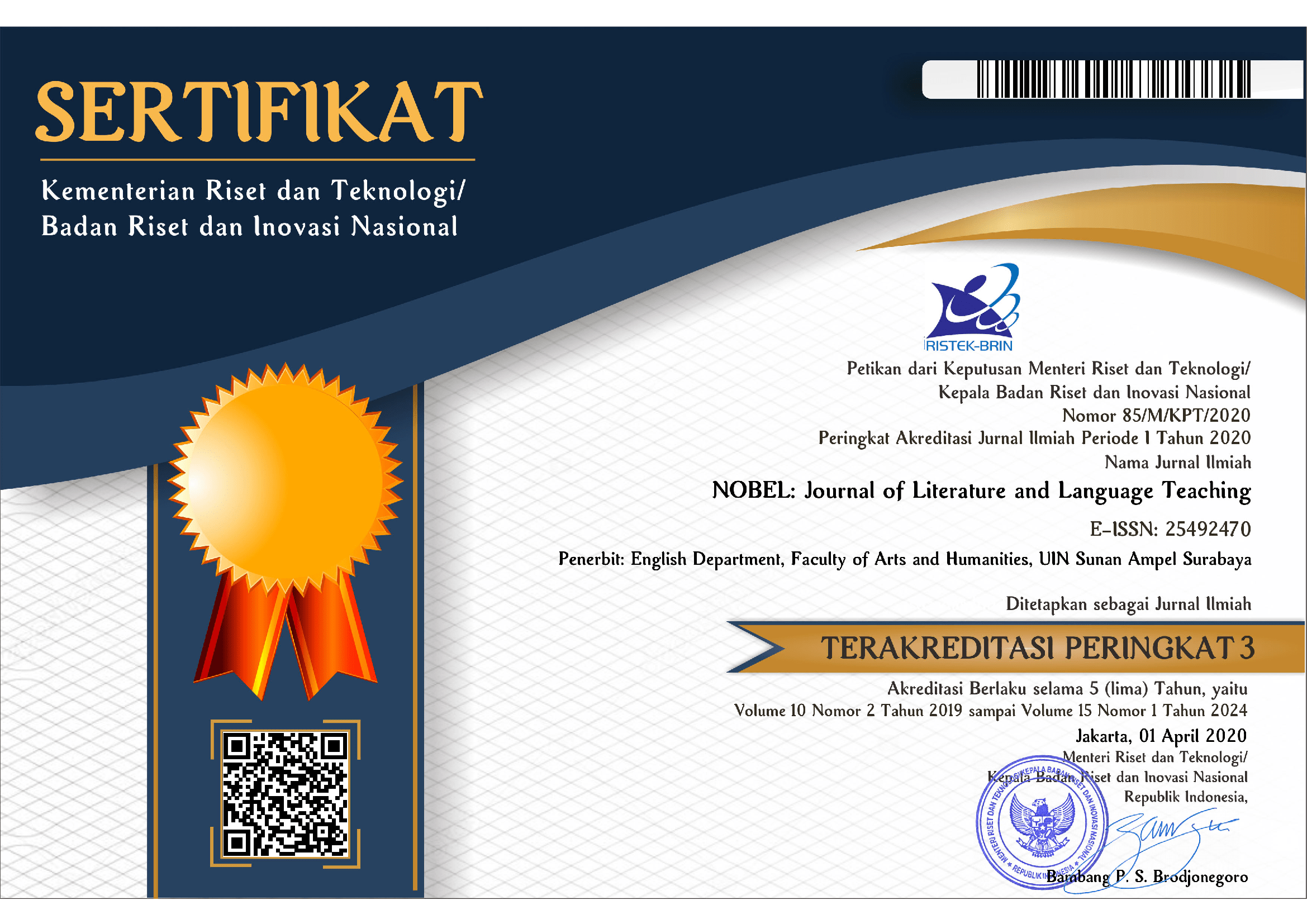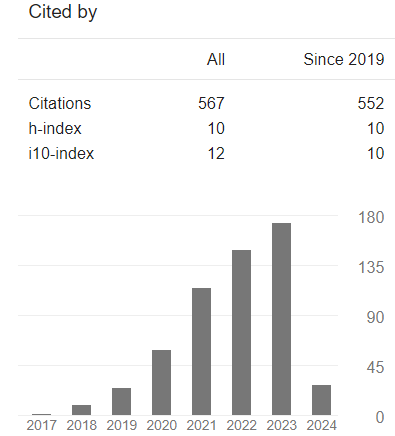Intermedial Transformation in Comic Book Movie Adaptation of X-Men: First Class
DOI:
https://doi.org/10.15642/NOBEL.2020.11.1.1-15Keywords:
intermedia translation, X-Men: First Class, comic books, movieAbstract
The objects of this study are eight X-Men: First Classcomic books, volume 1 published from September 2006 until April 2007 andX-Men: First Classmovie made in 2011.Texts in the forms of dialogues and visual images taken both from the comic books and the movie are the data which then are analysed qualitatively. Applying intersemiotic translation promoted by Zecca, this study is trying to uncover how social and economic factors influence translation process and whether there are any continuity and changes along the process.
The study focuses on the social and economic aspects involved in the process of transforming X-Men: First Class comic books as the source text, into the movie version as the targeted texts. Some adaptation and changes occurred as the consequence; plot and story lines are twisted, characters involved are replaced for the purpose of meeting the expectation of the targeted market of the movie. Supported by those who were involved in the process and the social issues echoing at the time when the process is happening, the social issues depicted in the texts are also sifted.
Downloads
References
Bluestone, G. (1957). Novel into film: A critical study. Baltimore: The John Hopkins Press.
TMDB. (n.d.). X-Men collection. Themoviedb. Retrieved November 6, 2017. https://www.themoviedb.org/collection/748-x-men-collection.
Collura, S. (2017, July 22). Comic-Con 2017: The X-Men are 'gone' in new series The Gifted. IGN. www.ign.com/articles/2017/07/21/comic-con-2017-the-x-men-are-gone-in-new-series-the-gifted
Dupont, N. (2011). Hollywood adaptations of comic books in a post-9/11 context: the economic and cultural factors. Transatlantica, (2), 1-21. http://journals.openedition.org/transatlantica/5419
Kaye, B. (2018, August 29). 20 years ago, blade made comic book movies credible: A serious approach to high-concept comics paved the way for the modern superhero film. Consequence of Sound. https://consequenceofsound.net/2018/08/20-years-ago-blade-made-comic-book-movies-credible/
Polo, S. (2011, June 11). X-Men: First Class screenwriter confirms LGBT subtext as totally intentional. The Mary Sue. https://www.themarysue.com/x-men-first-class-gay-subtext/
Strauss, B. (2000, August 12). Generator X: An interview with Stan Lee. The Guardian. https://www.theguardian.com/film/2000/aug/12/features
The Numbers. (n.d.). X-Men: First Class (2011). The numbers where the data and the movie business meet. Retrieved November 19, 2017 at 01:05 from www.the-numbers.com/movie/X-Men-First-Class
Zecca, F. (n.d.). Comics in motion: The intersemiotic translation of comics into film. Retrieved March 19, 2017 from http://www.academia.edu/10100816/Comics_in_motion_The_intersemiotic_translation_of_comics_into_film_draft_







